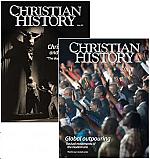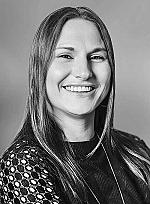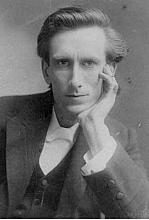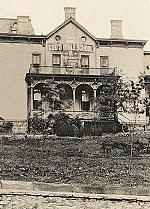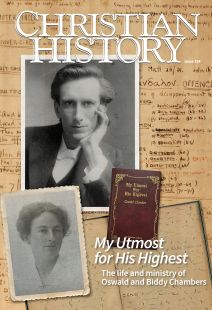Did You Know: My Utmost for His Highest
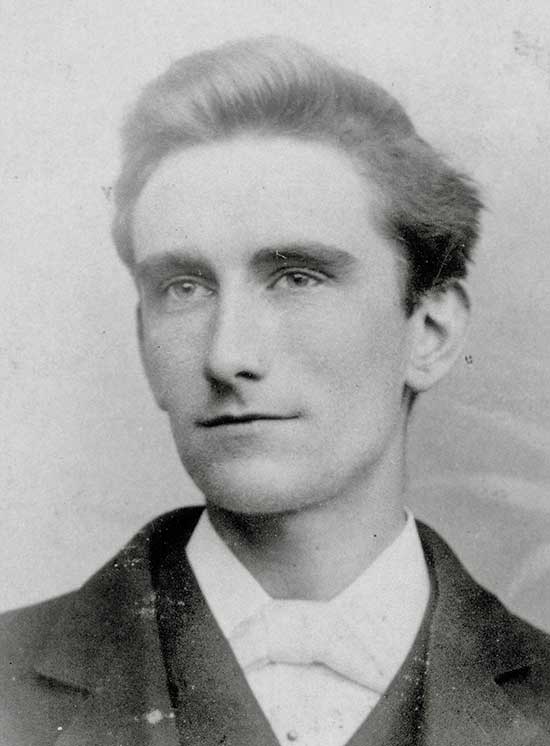
[Above: Oswald Chambers, age 16, Peckham, London—Used with permission of the Oswald Chambers Publications Association, Ltd. / images courtesy of Wheaton Archives & Special Collections, Wheaton College, IL.]
Faith and family
Oswald Chambers was the son of a stern and practical Scottish Baptist pastor, Clarence Chambers, and of Hannah Chambers. Affable and warm Hannah had in many ways an opposite personality to Clarence. Kathleen Chambers, their granddaughter, described Hannah as “loving and gentle and very, very sweet.” Clarence, however, was “completely and utterly humorless . . . a dour, dour Scot who preached hellfire.”
Oswald was the second youngest of their nine children, four boys (Arthur, Ernest, Franklin, and Oswald) and five girls (Bertha, Edith, Gertrude, Eva Mary, and Florence). He never knew Eva as she had died as an infant. Oswald was especially close to Gertrude. Like his oldest brother, Arthur, Oswald followed his father into preaching ministry.
Oswald's first love
At Rye Lane Chapel in London, teenaged Chambers became close to a young woman named Chrissie Brain and planned to marry her. However, his conviction to obey God’s call and the subsequent spiritual battles he faced caused him to end their eight-year relationship. His “dark night of the soul” (see pp. 18–20) intensified before resolving, especially after a girl at church where he served accused him of impropriety (church authorities investigated the accusation and cleared his name). Chrissie understood Oswald’s struggle, later writing of his sacrificial obedience as “formative and wonderful years of ‘Genesis’ . . . very real and human; not faultless, but blameless, a true knight of God, obedient to death, laying his ‘Isaac’ unquestioningly on the altar. To such is given the Crown of Life.”
Prayerful poet
Chambers wrote around 60 poems between 1892 and 1905. His works wrestle with heavy themes such as death, despondency, sin, and God, as well as the transcendence of art and nature. Chambers often left spiritual questions unresolved but hopeful, as this untitled work from 1895 displays:
Irritated, torn, and stung
By a madd’ning melancholy;
Peace and patience from us flung,
Restless yearnings have begun,
All is emptiness and folly.
O God! O God! These yearnings of the mind,
Craving vainly for what they cannot find,
Stay in their sad career.
Listen with patient ear,
O Thou Divine!
Just like her father
Chambers did not expect marriage to be part of God’s plan for him, but everything changed when he and Gertrude Hobbs ended up on he same ship to America (see pp. 14–16). He and Hobbs, whom he called “Biddy,” were engaged and married shortly afterward. They traveled the world for ministry, finally landing in Egypt for Oswald’s chaplaincy in the war.
The couple had one child: Kathleen. Oswald adored her. Kathleen was two when they arrived in Egypt, and she proved a key to the family’s success with the soldiers. (Once she ordered the head of the YMCA to baptize a doll. He complied.)
While Kathleen had no personal memory of her father due to his early death, Biddy spoke of him so often, Kathleen recalled that “it was as if he’d only just gone upstairs.”
As an adult Kathleen showed Biddy’s signature hospitality and was also described as “behaving just as radical as her father.” She died in 1997.
Field friends
Chambers was close with famous missionary Samuel Zwemer (1867–1952). Zwemer, known as the “Apostle to Islam,” served in Egypt from 1913 to 1929 with his wife, Amy. When Oswald and Biddy arrived in Cairo in 1915, the two missionary couples became friends. After Oswald’s death Amy and Samuel comforted and prayed with Biddy in their home close by. Samuel Zwemer spoke at the funeral.
The search for Oswald Chambers
When David McCasland, author of Oswald Chambers: Abandoned to God, began research on Chambers, very little information existed (see pp. 31–32). However, McCasland recounted several instances of “haphazard discoveries . . . engineered by the Holy Spirit”:
With only a name and a 1968 address, for example, I sent a letter to two of Oswald’s close friends. The letter found its way to their daughter, now in her seventies, who replied her parents were no longer living. “But,” she added, “I might have some of my mother’s notebooks from her years in Chambers’s Bible college.”
During a visit to her home, she produced a box containing her mother’s notes from Chambers’s lectures, her personal diaries, photographs, typed fragments of Chambers’s Egypt diaries, and a book of his poems.
McCasland’s search revealed a fuller picture of Chambers. He was deeply admired by those who knew him and remembered for his humorous and generous spirit. He was too generous, perhaps, according to his family and friends: one evening he was accosted by a drunken man asking for money. Chambers listened intently, then told him, “Man, I believe your story is all lies, but my Master tells me to give to everyone that asks, so here is my last shilling.” CH
Editors. “The Search for Oswald Chambers” is adapted from Christianity Today. Michelle Ule contributed to “Just Like Her Father.”
By Michelle Ule and the editors
[Christian History originally published this article in Christian History Issue #154 in 2025]
Next articles
Editor's note: My Utmost for His Highest
Whatever generation you belong to, it’s likely that someone gave you a copy of My Utmost for His Highest
Kaylena Radcliff



